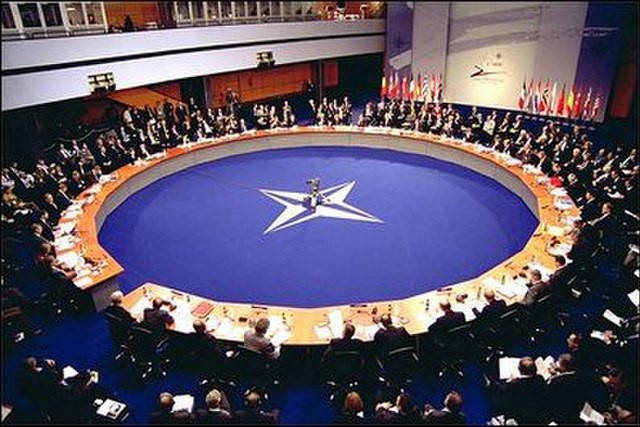The NATO alliance has signed a significant $1.2 billion deal to procure 220,000 rounds of 155-millimetre ammunition, a move highlighted by Secretary-General Jens Stoltenberg as crucial for both defending NATO territory and continuing support for Ukraine in its conflict with Russia. This substantial investment underscores the intensifying "battle for ammunition" that has become a focal point in the ongoing war.
Stoltenberg emphasized the importance of replenishing NATO's own stocks while providing necessary support to Ukraine, stating, "We cannot allow President Putin to win in Ukraine. That would be a tragedy for the Ukrainians and dangerous for all of us."
The deal was concluded by the NATO Support and Procurement Agency (NSPA) on behalf of several member states, including Belgium, Lithuania, and Spain. These countries will either supply the shells to Ukraine or use them to refill their own arsenals.
The urgency of this ammunition deal is highlighted by recent Russian attacks involving over 40 ballistic, cruise, anti-aircraft, and guided missiles into Ukraine's major cities, causing significant casualties and damage. The disparity in artillery firepower between Russia and Ukraine has been a growing concern. Russia's larger arms industry and recent arms packages from countries like North Korea have exacerbated the issue.
Ukraine is reported to be firing around 2,000 artillery shells per day, a significant decrease from the approximately 8,000 shells it used daily last summer, while Russia is believed to be firing about 20,000 shells per day.
However, the delivery of these much-needed shells will not be immediate. The NATO agency acknowledged that the procurement process could take anywhere from 24 to 36 months. This delay poses a challenge for Ukraine, which faces immediate shortages. Ukrainian officials have noted that their European partners failed to deliver 70% of the one million artillery rounds promised for 2023 and 2024. This shortfall has created a "worrying gap" in ammunition supplies, as highlighted by an advisor to the European External Action Service (EEAS).
In response to these challenges, the European Union is expected to ramp up its defense industry to produce around one million shells annually by the end of this year. Additionally, Ukrainian President Volodymyr Zelensky recently welcomed a £2.5 billion military aid package from the UK, a timely boost as the war continues. This package, announced during UK Prime Minister Rishi Sunak's visit to Kyiv, marks an increase of £200 million compared to the previous two years.
As NATO and its allies work to bridge the ammunition gap, the US, which hosted the latest international support group meeting for Ukraine, is looking to its allies to continue providing support. US Defense Secretary Lloyd Austin, while recuperating from prostate cancer surgery, urged the group to provide more ground-based air defense systems and interceptors to Ukraine.
This development in NATO's support strategy represents a critical juncture in the conflict, highlighting the alliance's commitment to Ukraine's defense and the challenges in meeting immediate logistical needs in a rapidly evolving battlefield.




